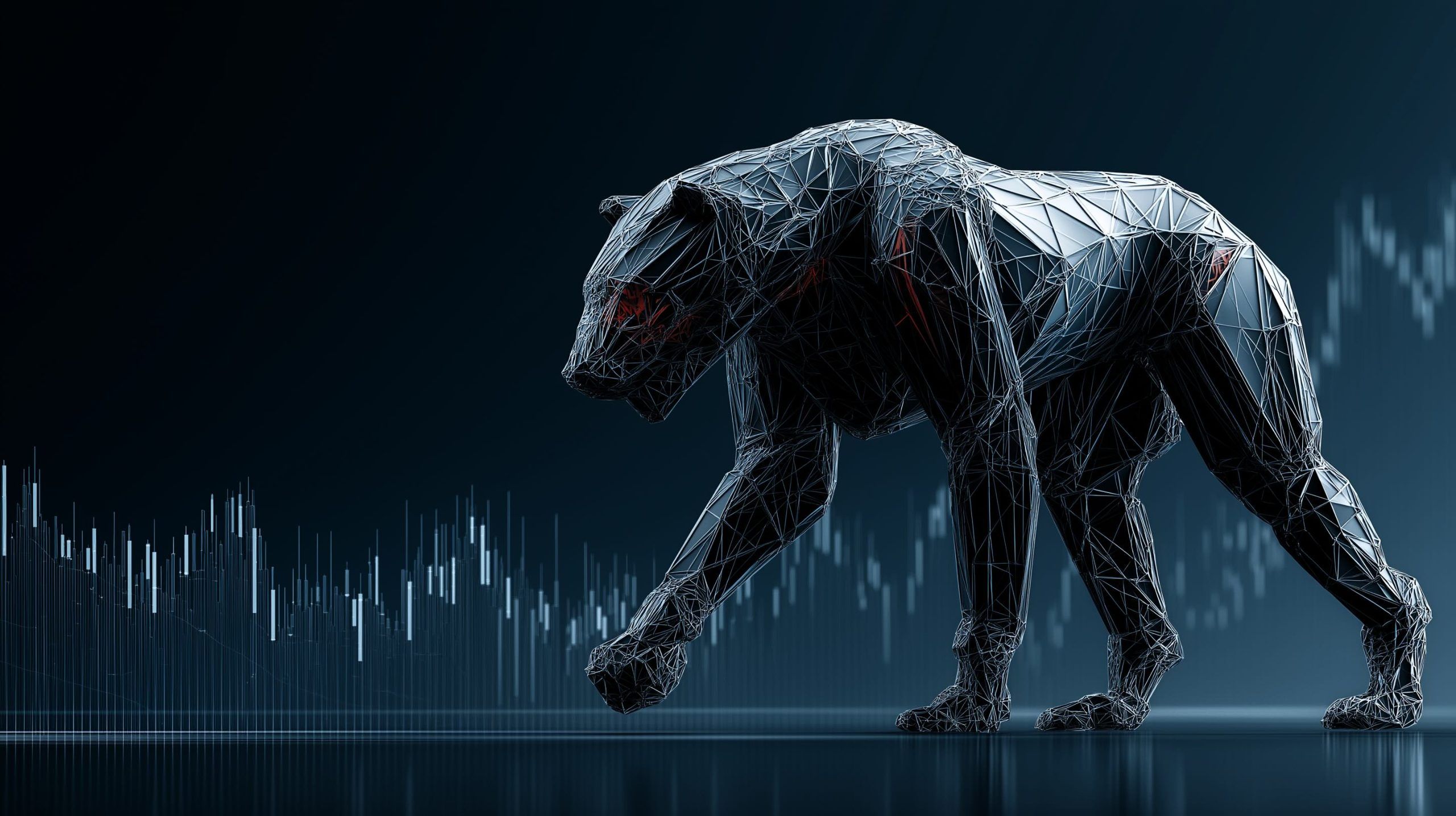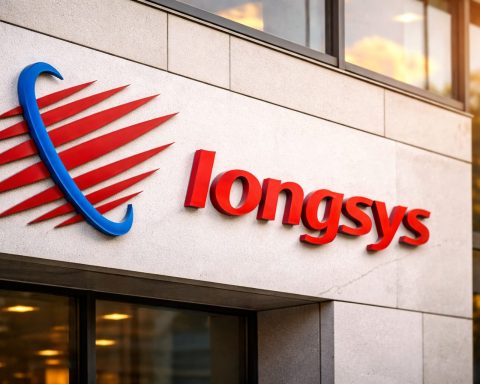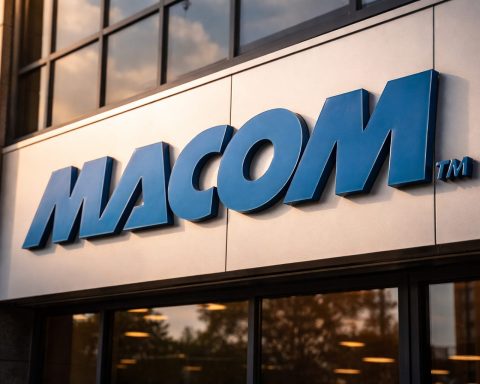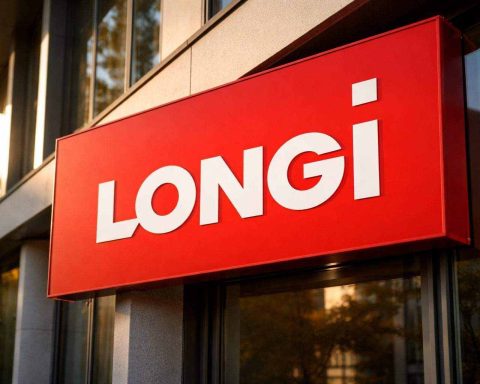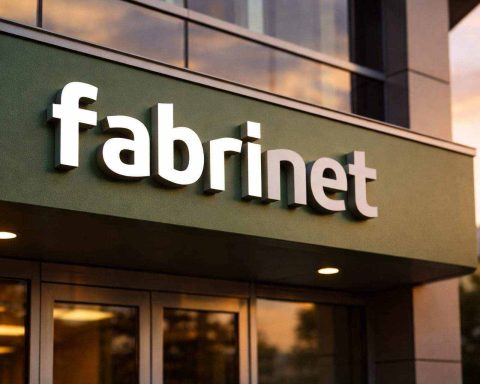- On July 31, 2025, the S&P 500 rose 0.7% and the Nasdaq climbed 1.2% after blockbuster Big Tech earnings, pushing indices to record highs.
- Microsoft stock rose about 5% after earnings, lifting its market cap above $4 trillion; Azure sales exceeded $75 billion in the past year, and Copilot has over 100 million users, with capex raised to a record $30 billion this quarter.
- Meta Platforms jumped 12.2% to an all time high after beating Q2 estimates and guiding higher for next quarter, with AI driven ad targeting helping revenue growth and 2025 capex guidance raised to $66–72 billion.
- Alphabet beat Q2 revenue estimates and raised its 2025 capital spending target to $85 billion to expand AI infrastructure, with Gemini testing over 450 million monthly users.
- OpenAI announced plans to build its first European data center in Norway with local partners to serve EU customers and meet European data rules.
- Tesla signed a $16.5 billion agreement with Samsung to manufacture Tesla’s Dojo AI processors (AI‑6) at Samsung’s Texas semiconductor fab, with Elon Musk personally overseeing production and Samsung shares rising about 7%.
- Palo Alto Networks agreed to acquire CyberArk Software for $25 billion, its largest takeover ever, with a closing timeline aimed for late 2026 and CyberArk stock around $424 versus a $495 offer.
- AI-focused ETFs surged, with ARKQ up 58% over the last year, AIQ hitting all‑time highs in July 2025, and KraneShares’ AGIX marking its one‑year anniversary with a 29.5% total return and about 6.7% of the portfolio in Anthropic and xAI.
- The Magnificent Seven are on track to spend over $330 billion in 2025 capex due to AI investments, reaffirming leadership in tech.
- EU’s AI Act is nearing finalization as of July 30–31, 2025, with Google signing onto the EU AI Code of Practice to aid compliance, Microsoft likely to sign, Meta declining, and Italy opening a competition probe into Meta over WhatsApp’s AI integration.
Wall Street Soars on AI Euphoria
Major U.S. indices vaulted to record highs as investor enthusiasm around AI ignited a tech rally. On July 31, the S&P 500 and Nasdaq surged (up 0.7% and 1.2% respectively) after blockbuster Big Tech earnings, even as inflation data and Fed caution typically might have cooled risk appetite reuters.com nbcrightnow.com. Microsoft stock leapt about 5%, propelling the company past a $4 trillion market cap milestone – a level previously reached only by AI-chip superstar Nvidia reuters.com. Meta Platforms jumped 12% to an all-time high after crushing earnings and issuing an upbeat forecast, crediting AI-driven ad targeting for unexpectedly strong revenue growth reuters.com. Nvidia also extended gains, and the tech-heavy Nasdaq Composite pushed above its prior record close 1 .
This AI-fueled rally unfolded despite macro headwinds. The day prior, Fed Chair Jerome Powell had doused hopes of imminent rate cuts, holding interest rates steady and warning that sticky inflation left little room to ease policy reuters.com nbcrightnow.com. Normally, such signals would send investors scurrying from high-valuation tech stocks. But as one strategist noted, “strong earnings results from some of the leading US tech companies have kept sentiment strong, allowing markets to make new gains” even in the face of higher-for-longer rates nbcrightnow.com. In other words, AI optimism trumped Fed pessimism, at least for now. “Renewed AI optimism” and resilient economic data have put Wall Street on track for another monthly gain reuters.com. Notably, until this week the “Magnificent Seven” mega-cap tech stocks had actually been trailing the broader market year-to-date, but their post-earnings surge now reaffirms their market leadership reuters.com 2 .
International markets saw a more subdued picture. European stocks failed to match the U.S. rally – London barely ticked green and Paris and Frankfurt were slightly in the red on July 31 nbcrightnow.com, as the continent lacks the same concentration of AI-driven tech giants. In Asia, many markets had slipped the day before under Fed jitters, though Tokyo and a few others managed gains nbcrightnow.com. Investors worldwide are weighing the U.S. tech boom against trade and policy uncertainties (from Washington’s tariffs to Beijing’s tech crackdowns). Yet the AI boom is global: MSCI’s World Tech index is up sharply, and even broad equity funds have seen inflows thanks to the AI rally and hopes of easing trade tensions reuters.com 3 .
Big Tech Earnings Blitz Lifts AI Stocks
The catalyst for the late-July frenzy was a wave of stellar earnings from AI-focused tech titans. Microsoft reported a jaw-dropping $27.2 billion quarterly profit, blowing past forecasts as its massive investments in AI begin to pay off nbcrightnow.com. The company touted booming demand for its Azure cloud services and AI tools – so much so that Microsoft said it will boost capital spending to a record $30 billion this quarter to add capacity reuters.com. Crucially, Microsoft for the first time disclosed concrete metrics for its AI success: Azure generated over $75 billion in sales in the past year, and its new AI Copilot features have 100+ million users, part of the 800 million customers now using AI-powered functions across Microsoft’s products reuters.com. “It’s the kind of result that quickly silences any doubts about cloud or AI demand,” said one market analyst, noting Microsoft is more than justifying its big spending reuters.com. Investors agreed – propelling MSFT stock up ~6% post-earnings and firmly into the exclusive $4 trillion club reuters.com 4 .
Meta Platforms likewise delivered a blowout quarter. The Facebook parent not only beat Q2 expectations but also raised its revenue outlook, citing surging engagement and better ad targeting thanks to new AI algorithms. Meta credited AI improvements in its core ad business for driving a rebound in sales growth reuters.com. The company told investors it expects next quarter’s revenues to far exceed Wall Street estimates, sending its stock rocketing 12.2% higher to a record valuation (adding roughly $200 billion in market cap in one day) reuters.com. Meta did caution that its race to catch up in AI will keep expenses elevated – it boosted this year’s capital expenditure budget to $66–72 billion (about $2 billion higher than prior plans) and warned that AI efforts will push its 2026 cost growth above 2025’s pace reuters.com. However, investors were comforted by Meta’s core advertising strength, which is helping fund those hefty AI outlays reuters.com. The market’s verdict: Facebook’s AI bet is starting to bear fruit, and the company can afford to spend big to stay in the game.
Alphabet (Google) had set the stage a week earlier with its own upbeat results. Google’s ad and cloud businesses bounced back with the help of AI enhancements in search and YouTube, enabling Alphabet to beat revenue expectations for Q2 reuters.com. Importantly, Google joined its peers in doubling down on AI infrastructure – raising its 2025 capital spending target by $10 billion to $85 billion in order to expand server capacity for AI, after already several quarters of multi-billion-dollar investments reuters.com reuters.com. Alphabet also revealed that its forthcoming Gemini AI model (an answer to ChatGPT) has 450 million+ monthly users testing it, underscoring the huge scale of AI rollouts reuters.com. Analysts took this as a clear sign that AI is emerging as a primary growth engine across search, cloud, and digital ads reuters.com. “As companies like Alphabet and Meta race to deliver on the promise of AI, capital expenditures are shockingly high and will remain elevated for the foreseeable future,” observed one analyst – but as long as the core businesses stay strong, it “will buy them more time with investors” to prove those AI investments are worthwhile 5 .
Amazon, the last of the U.S. tech giants yet to report, saw its stock drift about 1% higher in sympathy reuters.com. Investors anticipated that Amazon’s cloud arm (AWS) would show a similar AI-fueled boost when it announced results after the bell on July 31 reuters.com. With Microsoft and Google both stressing unprecedented AI demand in cloud services, Amazon – the largest cloud provider – was expected to echo that trend reuters.com. Indeed, the strong reports from its peers boded well for Amazon, suggesting the AI wave is lifting all major clouds. (In fact, Amazon later reported its cloud sales were accelerating thanks to AI workloads, affirming the theme.) Meanwhile, Apple – which reports a bit later – traded cautiously (shares down ~1% on July 30) as the lone mega-cap not loudly touting AI in its narrative investopedia.com. Still, Apple has been quietly integrating AI into iOS and is expected to unveil more AI features, so its upcoming results were also highly anticipated.
Crucially, these stellar earnings reinforced that Big Tech’s huge AI bets are starting to pay off. Collectively, the “Magnificent Seven” tech giants (Apple, Microsoft, Alphabet, Amazon, Meta, Nvidia, Tesla) are on track to spend over $330 billion in capex this year reuters.com. Investors had been scrutinizing this ballooning spend, but the latest results “simply prove the Magnificent Seven is still magnificent,” as one portfolio manager put it reuters.com. After a shaky start to 2025, these giants are reasserting leadership: “The big boys are back,” he declared reuters.com. Indeed, Microsoft’s CFO noted that surging AI demand is “shielding the tech giants” from other economic troubles, allowing them to deliver growth even as tariffs and macro uncertainties hit other industries reuters.com. The earnings deluge left Wall Street analysts raising price targets across the board on AI-exposed names pro.thestreet.com. A “big wave” of Microsoft and Meta earnings has lifted all AI stocks, noted TheStreet, boosting not just the FAANGs but also chipmakers like Nvidia that supply them reuters.com 6 .
Strategic Moves: Chips, Deals and AI Partnerships
Outside of earnings, the AI arms race spurred major strategic announcements across the tech sector. In a headline-grabbing deal, Tesla revealed it has signed a $16.5 billion agreement with Samsung to manufacture Tesla’s next-generation AI chips reuters.com. Samsung’s new Texas semiconductor fab will be tasked with producing Tesla’s custom “Dojo” AI processors (the “AI 6” chip) used for self-driving cars and robotics. Elon Musk touted the partnership as transformative, saying he will personally oversee production to “accelerate the pace of progress” at the Texas plant reuters.com. Musk even hinted the $16.5B is just a minimum, with actual output “likely to be several times higher” over time reuters.com. The deal is a big win for Samsung’s foundry business – Samsung shares jumped nearly 7% on hopes of a foothold in the AI chip market where it lags TSMC reuters.com. Tesla’s stock also popped ~4% following the announcement reuters.com, as investors saw it shoring up a reliable chip supply for future autonomous vehicles and the Optimus robot project. (Notably, this deal came as the U.S. and South Korea negotiate trade terms – Seoul has been seeking U.S. partnerships in chips to help mitigate looming U.S. tariffs reuters.com. It’s unclear if the Tesla-Samsung tie-up was influenced by those talks, but it underscores the geopolitical dimension of AI tech supply chains.)
Another blockbuster deal underscored the M&A appetite in the AI era: cybersecurity leader Palo Alto Networks agreed to acquire Israel’s CyberArk Software for $25 billion in a bid to beef up identity security against AI-driven threats reuters.com. This is Palo Alto’s largest takeover ever – “one of the largest tech takeovers this year,” according to Reuters reuters.com – and reflects rapid consolidation in cyber defense as AI raises the stakes. CyberArk specializes in privileged access management (securing login credentials to prevent breaches), which has become critical as AI increases the speed and scale of cyberattacks reuters.com reuters.com. Palo Alto’s CEO Nikesh Arora argued that with the rise of AI and an “explosion of machine identities,” security must be built on a model of zero-trust privileges for every identity reuters.com – hence the need to integrate CyberArk’s tools. The deal follows Alphabet’s $32 billion acquisition of cloud security startup Wiz in March reuters.com, and analysts say it could spark further M&A as firms race to offer one-stop AI security suites reuters.com. Palo Alto shares initially fell ~8% on investor jitters over digesting such a big purchase (the company mostly did smaller <$1B deals before) reuters.com. “It’s unknown territory for Palo Alto,” noted one analyst of the integration risk reuters.com. Still, most agree the move bolsters Palo Alto’s appeal to large enterprises worried about AI-era breaches reuters.com. CyberArk’s stock, which had jumped on takeover rumors earlier, ended around $424 (below the $495 offer value) amid some uncertainty on deal timing reuters.com reuters.com. If completed, the buyout is expected to close in late 2026 and immediately boost Palo Alto’s revenue growth and margins 7 .
The AI space also saw partnerships and expansions aimed at future growth. OpenAI announced plans to build its first European data center in Norway, in collaboration with local partners reuters.com. The new facility will help OpenAI comply with European data rules and improve service for EU customers, as demand for ChatGPT and other AI services soars globally. In China, Baidu and other tech giants (Alibaba, Tencent) have been launching their own generative AI platforms – Baidu this month rolled out “MuseSteamer,” an image-to-video generator for business use, along with an AI-enhanced search engine upgrade reuters.com reuters.com. While that news came earlier in July, it signals that Chinese tech firms are racing to catch up in the AI arena beyond chatbots. However, Chinese companies face challenges from both U.S. export controls on advanced chips and domestic competition. For example, when Baidu open-sourced its Ernie AI model in late June, Alibaba’s stock slipped ~1.4% as investors feared tougher competition in China’s AI cloud market 8 .
Even smaller AI-focused players are riding the wave. Data-center operator Applied Digital saw its shares skyrocket 33% in one day after reporting blowout earnings driven by “AI-driven demand” for its cloud services reuters.com reuters.com. The company surpassed revenue estimates thanks to a rush of customers training AI models on its infrastructure. Other chip suppliers also rallied – Broadcom rose ~2%, tagging along with Nvidia on optimism for AI chip orders investopedia.com. But it’s not universally rosy: some semiconductor firms have flashed caution. Texas Instruments (TI) and Dutch chipmaker ASML, both critical enablers of the tech ecosystem, saw their stocks slump ~14% earlier in July after their earnings reports. TI beat estimates but warned of a coming sales slowdown (its customer base is broad and cyclical) which sent its stock tumbling nasdaq.com nasdaq.com. Similarly, ASML could not confirm growth in 2026 due to macro and geopolitical uncertainty, unnerving investors despite reaffirming strong 2030 targets nasdaq.com nasdaq.com. These warnings suggest that not every corner of “AI tech” is booming at the same pace – analog chips and chipmaking equipment face near-term headwinds even as cloud AI demand explodes. Still, many analysts see those dips as buying opportunities, arguing the long-term AI trajectory for such companies remains intact nasdaq.com 9 .
Global Players and Policy Crosswinds
The late-July tech rally played out against a backdrop of significant policy moves and international developments that could shape the AI and tech landscape. In Washington, the U.S. administration rattled markets with a series of trade tariff actions that have direct implications for big tech and AI supply chains. President Donald Trump is pursuing an aggressive tariff strategy as part of renegotiating trade deals. On July 31, he unveiled a deal imposing 15% tariffs on South Korean goods effective Aug 1, in exchange for South Korea committing a massive $350 billion investment in U.S. industries nbcrightnow.com. He also announced a new 25% duty on all imports from India, coupled with unspecified penalties over India’s purchases of Russian military gear and oil nbcrightnow.com. And in a move with major e-commerce ramifications, Trump ended the “de minimis” tariff exemption that had allowed low-value imports (under $800) to enter the U.S. duty-free apnews.com. This little-known loophole fueled the rise of Chinese shopping apps like Shein and Temu by letting them ship millions of cheap parcels to American consumers without taxes apnews.com. Its closure – set to take effect Aug 29 – means 4 million packages a day from China will now face duties, raising costs for Chinese retailers and global online marketplaces apnews.com apnews.com. U.S. retailers like Amazon, which hosts many third-party Chinese sellers, could also feel the pinch if those goods become pricier apnews.com. Industry observers noted that Shein and Temu “braced for impact” as this policy change threatens their ultra-low-price model benzinga.com. Traditional U.S. retailers, however, cheered the move – they have long argued the exemption gave Chinese competitors an unfair advantage and even contributed to some store closures apnews.com 10 .
These trade volleys come amid a broader U.S.-China tech rivalry. The U.S. has already restricted exports of advanced AI chips to China, and China in turn has curbed exports of critical chipmaking minerals. Big Tech is caught in the middle: companies like Apple, Tesla, and Qualcomm are exposed to China both as a market and part of their supply chain, so any escalation in tariffs or tech sanctions could impact them. For instance, Apple’s stock dipped in late July on reports that China’s government might broaden an iPhone ban for state employees (continuing a pattern of tit-for-tat tech limitations). And Alibaba, Baidu, and Tencent – China’s tech titans – are contending not only with U.S. curbs but also a slower domestic economy and increased Chinese regulatory scrutiny on AI algorithms and data use. While not much new came out of China policy-wise in the past two days, it’s clear that geopolitics remain a wild card for AI and Big Tech investors. Notably, Trump’s tariff blitz hasn’t spared allies either (as seen with Korea and India), prompting concerns about higher costs and supply disruptions. Brazil’s government, for one, decried the sudden 50% tariff Trump threatened on Brazilian goods (part of his push to pressure various countries by a self-imposed deadline) reuters.com reuters.com. The Brazilian president called it a “growing dispute” and scrambled to seek reversal of the levies reuters.com 11 .
On the regulatory front, policymakers are homing in on AI governance. In Europe, the EU’s landmark AI Act is nearing finalization, and officials are pushing a voluntary “AI Code of Practice” to guide companies ahead of the law. On July 30, Alphabet’s Google announced it will sign onto the EU’s AI code – pledging to help meet requirements like transparency in training data and compliance with copyright rules for AI models reuters.com. Google’s global affairs chief Kent Walker said the company signs on in hopes of ensuring Europeans access “secure, first-rate AI tools” reuters.com. However, Google also voiced concerns that some EU proposals (like requiring disclosure of trade-secret model details or slow approval processes) “could chill…development and deployment” of AI in Europe, potentially harming competitiveness reuters.com. Microsoft indicated it will likely sign the EU code as well reuters.com. In contrast, Meta Platforms declined to sign, citing legal uncertainties for AI developers under the draft rules reuters.com. Meta – which owns Facebook, Instagram, and WhatsApp – is worried the EU’s approach may overreach and stifle innovation. This tension highlights the broader debate: Europe wants to set a global “AI governance” benchmark (just as it did with data privacy via GDPR), while U.S. tech firms fear over-regulation. The EU AI Act, once in force, will be the world’s first comprehensive AI law, and big tech companies are already adapting to it. For example, OpenAI’s move to host data in Europe (via the Norway center) is partly to appease EU regulators on privacy and sovereignty.
Meanwhile, antitrust regulators are scrutinizing AI’s integration into existing platforms. In Italy, authorities opened a formal competition investigation into Meta on July 30, focusing on the way Meta has integrated an AI chatbot into WhatsApp. The Italian Antitrust Authority (AGCM) suspects Meta may be abusing its dominant position by essentially tying its new Meta AI assistant to WhatsApp’s messaging service euronews.com euronews.com. Starting in March 2025, Meta began pre-installing its AI chatbot in WhatsApp for all users – something the AGCM says could unfairly steer WhatsApp’s huge user base toward Meta’s own AI services, “imposing” the AI on users and shutting out rival AI offerings euronews.com euronews.com. Officials even raided Meta’s offices in Italy as part of the probe euronews.com. Meta has denied any wrongdoing, arguing users aren’t forced to use the AI feature and can ignore it. But if the Italian case finds that Meta violated EU competition law, it could result in hefty fines or requirements to unbundle the AI function. It also signals rising regulatory vigilance: authorities want to ensure Big Tech doesn’t leverage its dominance in one arena (chat apps, operating systems, etc.) to gain an unfair advantage in AI services. Elsewhere in Europe, Ireland’s Data Protection Commissioner is scrutinizing how Meta and others use personal data to train AI models euronews.com, and EU regulators have multiple ongoing inquiries into generative AI providers’ privacy practices. In the U.S., the FTC has hinted it’s watching AI for anti-competitive or deceptive uses (recently cautioning that bogus AI claims in advertising or misuse of consumer data could draw enforcement). So even as AI companies race forward, the regulatory backdrop is heating up on issues from antitrust to privacy to intellectual property.
AI-Focused ETFs Surge as Investors Pile In
With AI the hottest theme on the street, investment funds specializing in AI have seen remarkable performance and inflows. A slew of AI-focused ETFs (exchange-traded funds) launched over the past two years, and many are handsomely outperforming the broader market. The top-performing AI ETF over the last year is ARK’s Autonomous Tech & Robotics ETF (ARKQ), up a stunning 58% on a one-year basis nerdwallet.com. This fund holds names like Nvidia, Tesla, and other “picks and shovels” of the AI revolution, and it has handily beaten the S&P 500’s return thanks to those concentrated bets. Another newcomer, the Global X Artificial Intelligence & Technology ETF (Ticker: AIQ), hit all-time highs this month as its mix of U.S. and Asian AI stocks rallied (including chipmakers, big cloud firms, and robotics companies).
Notably, KraneShares’ AI & Tech ETF (AGIX) just celebrated its 1-year anniversary, having launched in July 2024 globenewswire.com. In its first year, AGIX delivered a +29.5% total return, significantly outpacing the Nasdaq 100’s ~18.6% gain in the same period globenewswire.com. What sets AGIX apart is its unique strategy of investing not only in public AI stocks but also taking direct stakes in private AI unicorns like Anthropic and xAI (Elon Musk’s AI startup) globenewswire.com globenewswire.com. As of the end of July, nearly 6.7% of its portfolio was in Anthropic and xAI shares globenewswire.com – making it one of the first U.S. ETFs to hold private venture-backed AI firms. This hybrid approach gives regular investors a slice of the high-flying private AI sector that’s normally hard to access. “Not only has AGIX delivered a standout year of performance, but its structure gives investors access to both public and private companies driving the future of AI,” a KraneShares strategist noted globenewswire.com. The success of such funds underscores how Wall Street is clamoring for AI exposure anywhere it can be found.
Broadly, thematic tech funds are seeing massive inflows. In early July, as AI hype picked up, investors poured about $1.8 billion of net new money into tech sector ETFs in just one week reuters.com. Global equity funds overall attracted billions as well, buoyed by the AI rally and hopes that trade tensions might ease reuters.com. On the flipside, some investors are taking profits – there were reports of hedge funds trimming positions in overheated AI stocks and rotating into other sectors or into less frothy international markets. But retail investor interest remains robust: trading volumes for popular AI-related stocks and ETFs have been elevated. Even meme-stock style chatter has emerged around smaller AI names, though nothing like the GameStop frenzy of 2021. Analysts warn investors to be selective and not chase every AI-themed stock blindly. Still, the consensus is that AI is a secular trend that could justify these valuations. One big question is whether the gains are front-loaded (pulled forward from future years’ growth) or if earnings will continue surprising to the upside. After this earnings season, many on Wall Street are raising their forecasts for AI beneficiaries’ future profits pro.thestreet.com, given the clear evidence that corporate spending on AI is translating into real revenue and efficiency gains.
In terms of sectors, AI isn’t only about Big Tech. Specialized AI and robotics ETFs often include industrial and healthcare names deploying AI. For example, the ROBO Global Robotics & Automation ETF (ROBO) and Global X Robotics & AI ETF (BOTZ) hold companies like automation equipment makers, which are also seeing increased orders as manufacturers invest in AI-driven productivity. Those funds are up strongly year-to-date (roughly 20–30%). Even legacy tech ETFs like QQQ (Nasdaq-100 tracker) have effectively become AI plays, since the top holdings (Apple, Microsoft, Nvidia, etc.) derive much of their growth narrative from AI. As a result, QQQ is up about 40% YTD, its best start in decades, thanks largely to the AI components.
One clear trend: investors are rotating into “risk-on” assets on AI optimism. Bond funds and defensive sectors saw outflows at times, while speculative tech saw inflows reuters.com reuters.com. This “great rotation” suggests that fears of recession or high rates are taking a backseat to the fear of missing out on the AI boom. However, seasoned strategists advise maintaining diversification. “The AI trade is thrilling, but it’s getting crowded,” one fund manager cautioned on CNBC, pointing out that at some point the trade could unwind if results disappoint. In the near term though, there’s no sign of that – Q2 results have been overwhelmingly strong for the AI leaders.
Expert Outlook: Cautious Optimism Ahead
The rapid ascent of AI-related stocks in 2025 has been nothing short of astonishing, and it raises the stakes for what comes next. Institutional investors are both excited and nervous – excitement about AI’s transformative potential, but nervous that valuations have grown rich. Many trusted analysts and economists are urging a dose of caution even as they raise price targets. Goldman Sachs economists recently noted that AI could boost U.S. labor productivity and GDP significantly over the next decade, which would justify higher equity valuations, but they warned of “speed bumps” along the way such as regulatory hurdles and uneven adoption across industries (a reminder that not every company will be a winner in the AI race). Some on Wall Street also point out that we’ve seen tech investment crazes before – from dot-com to cloud to crypto – and while AI appears more fundamentally grounded, there will likely be shakeouts and intense competition (for example, which cloud provider or chipmaker secures the most AI workload market share is still to be determined).
That said, the prevailing sentiment after this week’s events is one of confident optimism. The fact that mega-cap companies are delivering real earnings growth again – not just AI hype – is a game changer. “This earnings season has been a proof-of-concept for AI,” said an equity strategist. Multiple firms have shown tangible revenue uplift from AI, whether in advertising (Meta), cloud usage (Microsoft, Google), or customer interest in new AI services. It’s convincing many skeptics that AI’s impact on the bottom line is happening faster than expected. “The big boys are back,” as the Zacks Investment Management portfolio manager put it, referring to the resurgence of Big Tech leadership reuters.com. In addition, newer players from startups to chip manufacturers are riding a massive investment cycle in AI – over $20 billion in venture funding flowed to AI startups in just the first half of 2025, and many are now hitting milestones like Anthropic’s $4 billion annual revenue run-rate (four times higher than at the start of the year) seekingalpha.com. Such growth underscores why investors are excited: AI isn’t a distant promise; it’s here and now, and demand is outstripping supply in many areas (hence the huge capex builds).
Even economists who worry about inflation or labor displacement see a silver lining. Some note that AI productivity gains could help tame inflation in the long run by making businesses more efficient. Others highlight that big tech hiring has stabilized – after some late-2024 layoffs, firms are again selectively adding AI talent, a sign of confidence in growth. Government officials are paying attention too: in the U.S., the Biden (previously Trump) administration has floated incentives for AI research and possible new immigration visas for AI-skilled workers, aiming to keep America at the cutting edge (though partisan politics complicate these initiatives).
In sum, the July 30–31 roundup of AI and big tech stocks paints a picture of a market buoyed by breakthrough results and bold bets, tempered by policy risks and the need for execution. Investor FOMO (fear of missing out) is strong – nobody wants to be left behind if AI truly is the “new electricity” powering the next economic boom. But there’s also a growing recognition that volatility will accompany innovation. As one market analyst quipped, “We’re in the first act of the AI story – it’s a blockbuster so far, but there are more twists to come.” For now, though, the scoreboard for late July 2025 reads decisively in favor of AI bulls: record stock prices, robust earnings, surging investments, and a global race that is only accelerating. Investors will be watching the coming weeks of economic data and any guidance from the Fed, but as July turned to August, one thing was clear – the AI revolution is translating into serious market momentum, and even seasoned market veterans are impressed by the speed of this sea change in tech fortunes reuters.com 2 .
Sources: Reuters reuters.com reuters.com reuters.com nbcrightnow.com nbcrightnow.com reuters.com reuters.com reuters.com reuters.com reuters.com nbcrightnow.com reuters.com reuters.com euronews.com euronews.com reuters.com reuters.com reuters.com reuters.com reuters.com reuters.com nasdaq.com nasdaq.com apnews.com nerdwallet.com 12 .
